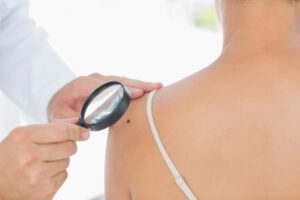
Long-time sufferers of eczema know that living with the condition can be incredibly frustrating. One minute your skin is fine, and the next, it’s red, itchy, and inflamed for what feels like no reason at all. Chances are you’ve dealt with your fair share of flare-ups before, or you know someone who has.
The truth is, while eczema is a chronic condition with no official cure, there are ways to manage it from the comfort of home and, with the right routine, you can reduce symptoms and make your skin feel so much more comfortable. Even the best dermatologist in Bucks County is aware that these remedies can go a long way towards mitigating everyday symptoms.
Let’s break down some simple, tried and true methods you can care for eczema at home!
Taking Shorter, Less Scorching Showers
Who amongst us doesn’t revel in the chance to spend those precious, extra few minutes in the shower enjoying the warmth that the water can provide? This is common at the beginning of your day or at the end of a very long one. However, what you might not realize is that this extra time in the shower can actively cause our eczema to flare up. Not only does hot water dry out our skin in general, but it works to strip away your skin’s natural oils, leaving it dry and vulnerable.
Additionally, it’s recommended to take showers that are lukewarm in temperature. This way, your skin won’t be under such harsh attack from the constant stream of water. It’s also advisable to pat yourself dry, rather than aggressively scrubbing, to further safeguard your skin from eczema breakouts. If you must have hot water in the shower, be sure to limit the time you spend in the shower. Five to ten minutes is all you’ll likely need and your skin will thank you.
Use Skin-Conscious, Fragrance-Free Cleansers
If we really want to start doing our skin favors, going beyond the amount of time we spend in the shower and thinking critically about what products we use is the best course of action. It’s easy to assume that anything labeled “clean” or “natural” must be safe but, as it turns out, that’s rarely the case. Products with strong fragrances, dyes, or alcohol can be obvious culprits involved in triggering eczema outbreaks. Instead, prioritize cleansers that are marketed as gentle, fragrance-free and for sensitive skin. Furthermore, stay away from cleansers that include sulfates (like SLS or SLES), as these foaming agents are found in many soaps and shampoos that can dry and irritate skin.
Moisturize Properly After Taking Your Showers
Working hand-in-hand with the temperature, length and products involved in your showers, properly moisturizing after you step out of the tub can make a world of difference. Even the most careful precautions given to your skin during a shower can still yield unwanted issues if you don’t comprehensively moisturize after you finish. It’s also important to complete this quickly as doing it while your skin is still slightly damp helps seal in moisture and protect your skin’s barrier. It’s recommended to use thick creams or ointments that are gentler on skin, in lieu of lotions, which can evaporate quickly and don’t hydrate as deeply.
Choose Clothing that Works with You (and Not Against You)
For those who battle eczema on a daily basis, what we place on our bodies is just as vital as how we clean them. Not only what you wear, but how you subsequently wash it, can play a part in increasing the unenviable symptoms associated with eczema. Opting for soft, breathable fabrics can be instrumental in lessening the itch. These fabrics include:
- 100% Cotton
- Tencel
- Silk
On the other hand, actively avoiding overly harsh and abrasive materials on your skin such as wool, polyester/synthetic blends and excessively tight clothing can help you stay unburdened during whatever your day throws at you. When you decide to wash your clothes, go the extra mile and strive to use detergents that are fragrance-free, dye-free, and hypoallergenic. It’s best to skip the dryer sheets altogether as dryer balls made of wool or silicone are safer alternatives.
When to Consult a Dermatologist
Managing eczema at home with over-the-counter remedies and lifestyle tweaks can go a long way, but sometimes it’s just not enough. If your skin is persistently uncomfortable, flaring up more often, or you’re unsure what’s triggering your symptoms, it might be time to see a professional. A practicing dermatologist in Northeast Philadelphia can be the solution and that’s where the team at Pennsylvania Dermatology Specialists can help. We provide industry-leading knowledge and standards to not only diagnose your eczema issues, but put you on the path to clearer, more comfortable skin. So, what are you waiting for? Take the next step towards relief and contact us today!








No comment yet, add your voice below!